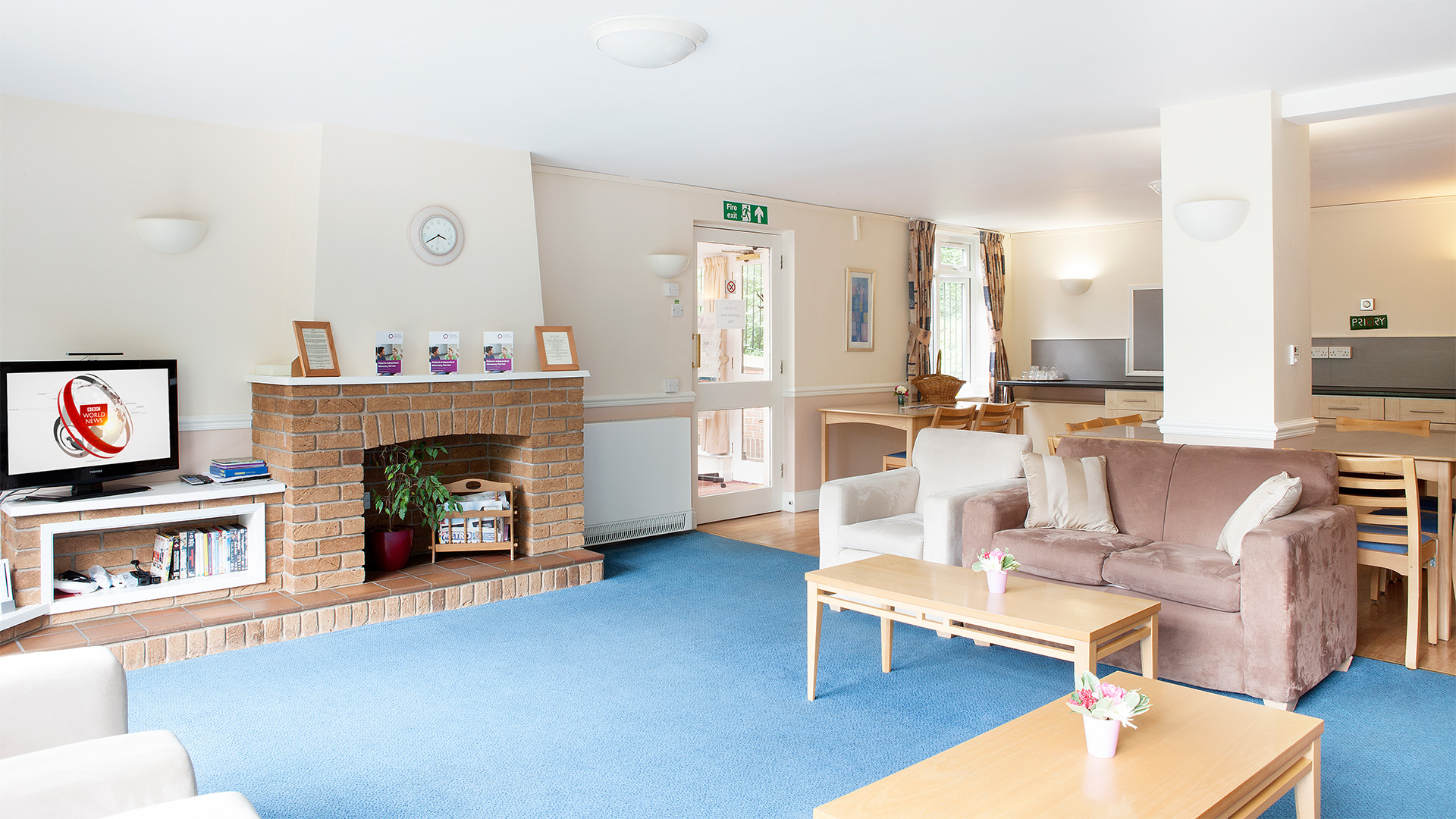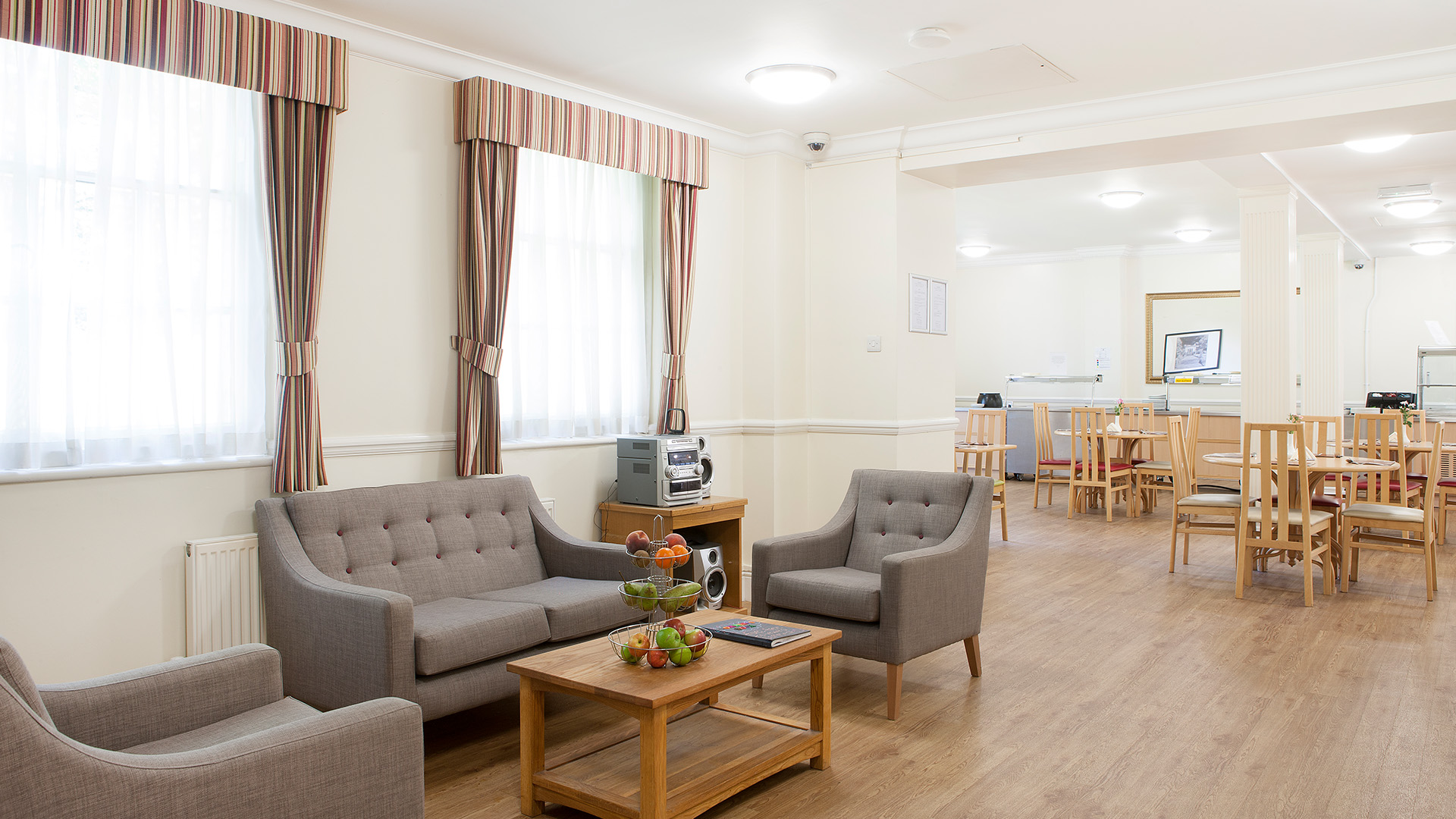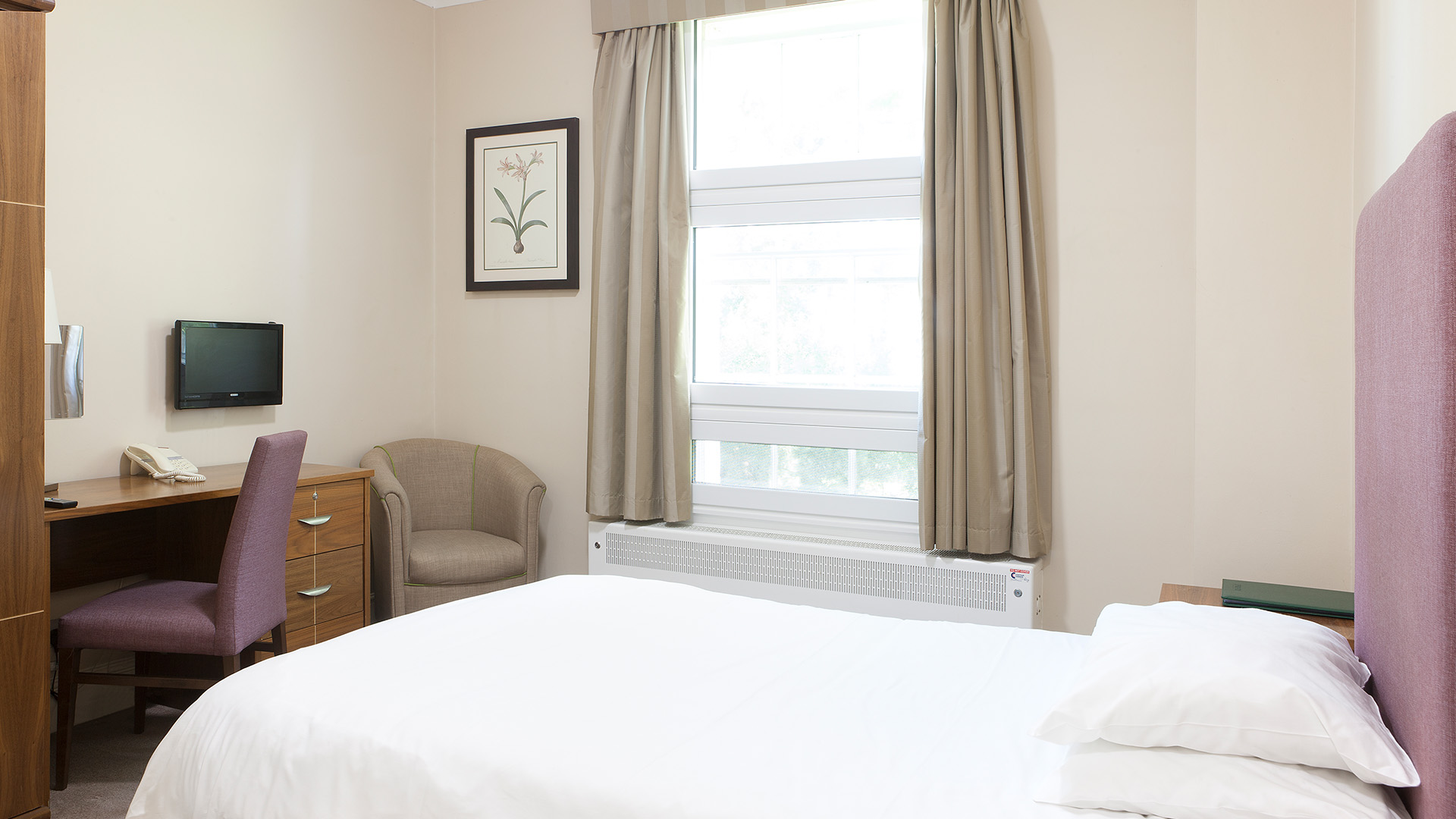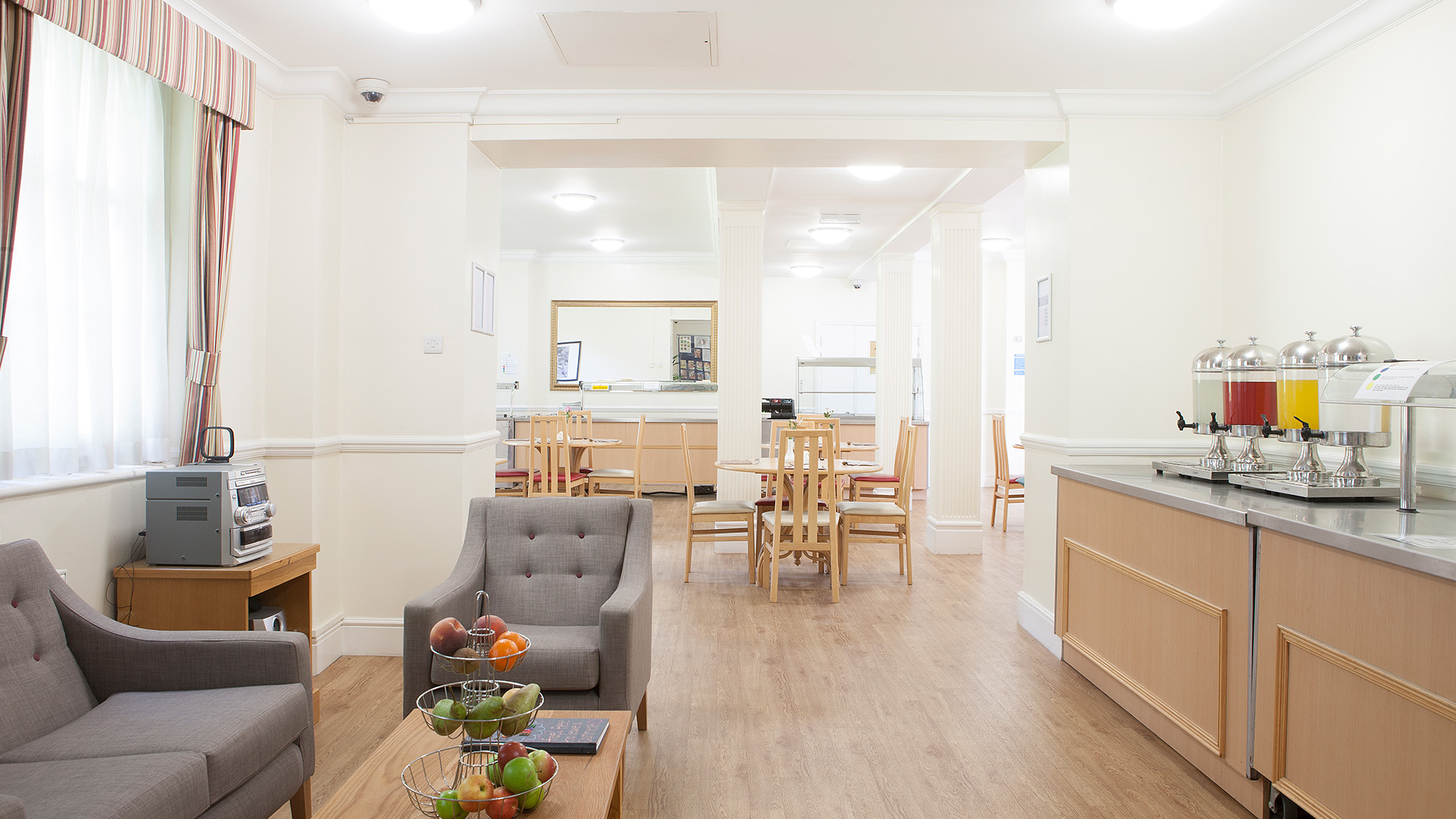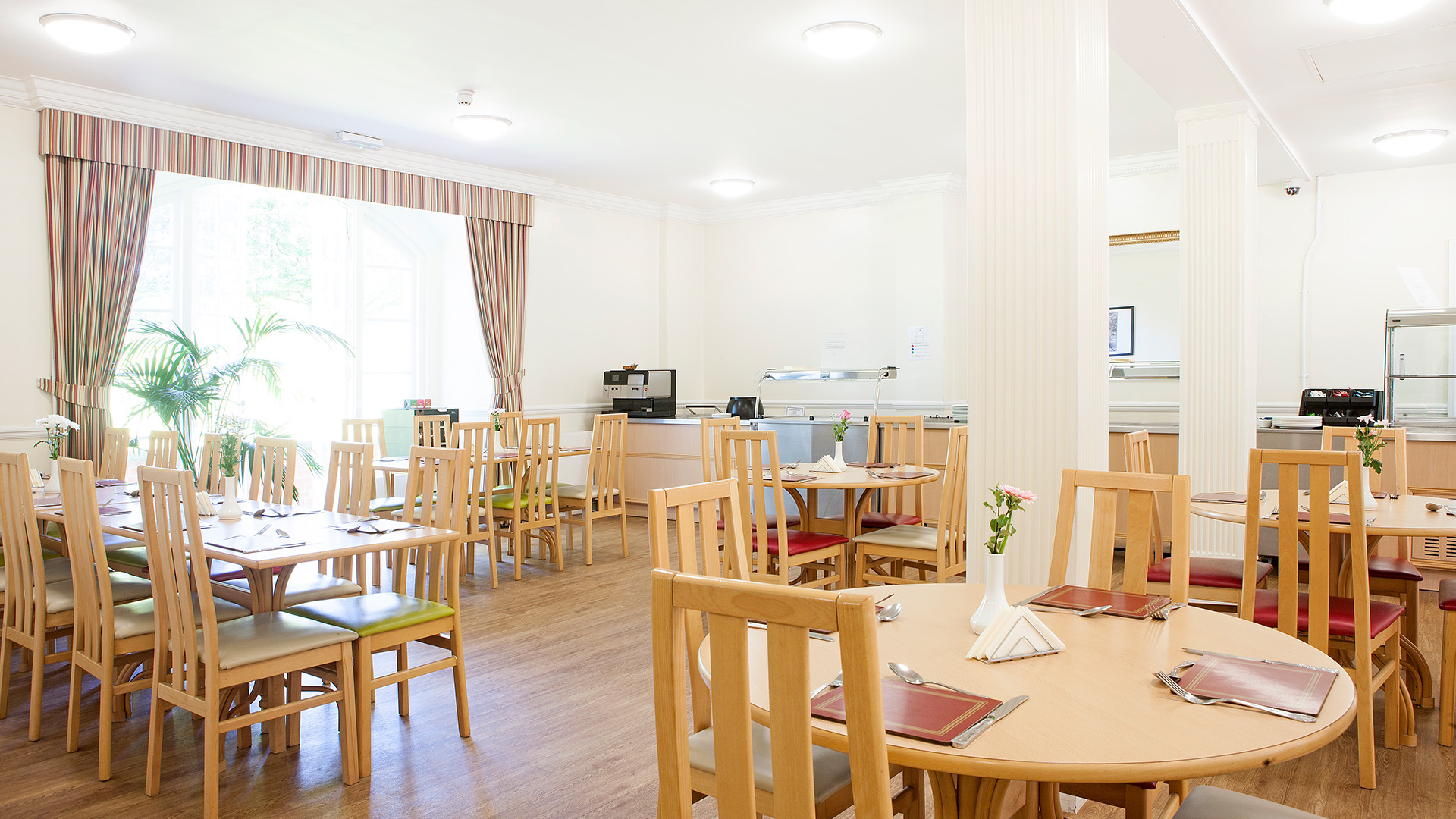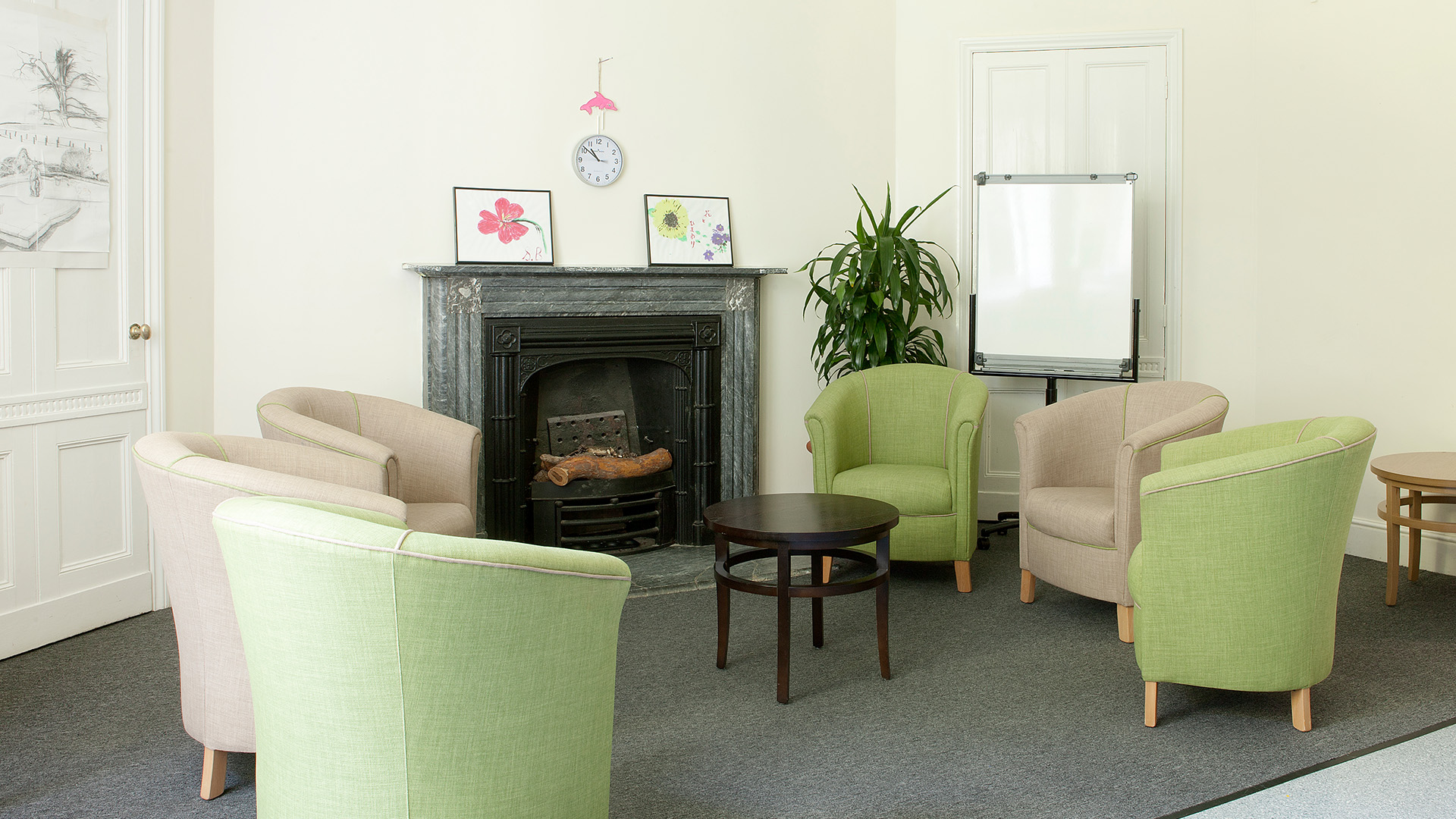About this location
Set within beautiful, landscaped gardens, Priory Hospital Southampton’s tranquil environment offers therapeutic and recovery-focused residential treatment for those suffering from a number of mental health conditions. We can support adult males and females with acute mental health needs, as well as eating disorders.
Priory’s acute and PICU services aim to allow more people to be treated closer to home and we support the NHS to repatriate out-of-area patients back to local areas.
Services at a glance
Contact us
Click here to enable this content
Services
Our acute services offer round-the-clock assistance in times of emergencies. Our specialist inpatient acute teams are committed to providing the highest quality of care, supporting patients with a wide range of mental health conditions in safe and highly therapeutic environments.
Ward break down
- Sandpiper – 18-bedded acute mental health ward for adult males and females
- Starling – 13-bedded acute mental health ward for adult males and females
Conditions treated
We are able to support people with:
- Complex mental health needs
- Personality disorders
- Depression
- Anxiety
- Psychosis
- Self-harm
- Substance misuse
- Schizophrenia
- Physical disabilities
We can also support people with the following challenges alongside their primary mental health diagnosis:
- Mild autism
- A mild learning disability
We are able to support informal patients or those detained under the Mental Health Act (MHA).
Treatment approaches
At Southampton, we offer an individualised, person-centred approach to all of our patients.
Our main aim is to treat patients with dignity, kindness and respect and to help as many people as we can to return to their lives in the community after a period of treatment with us.
Our assessment and treatment options are overseen by a full and diverse multidisciplinary team (MDT).
We offer:
- Positive behaviour support (PBS)
- Group therapy programme
- Dialectical behaviour therapy (DBT) group sessions
- Cognitive behavioural therapy (CBT)
- Occupational therapy (OT)
- Compassion focused therapy (CFT)
- Music therapy
- Drama therapy
- Mindfulness
- In-bodied psychotherapy group, which uses movement to cultivate positive states of mind
- Unshared experiences group, providing support to people with psychosis
People within our acute service tend to stay with us on a short-term basis.
Our team
- Director of clinical services
- Ward manager
- Deputy ward manager
- Registered mental health nurses
- Senior healthcare assistant
- Healthcare assistants
- Occupational therapist (OT)
- OT assistant
- Drama therapist
- Gym instructor
- Consultant psychiatrist
- Specialty doctor
- On-site physical health nurse
Therapeutic and community-based activities
We offer a range of therapeutic and community-based activities as part of a full treatment programme. We want to support people to become more confident and independent, preparing them to move through their treatment pathway towards community living.
Our therapeutic and community-based activities include:
- Morning orientation
- Walks in the grounds
- Expressive/creative groups
- Social cooking/life skills
- Recover through activity
- Community trips
- Community meetings
- 1:1 gym sessions
- Yoga
Our facilities and environment
We provide:
Our bedrooms
All of our bedrooms are single-occupancy and have an en-suite bathroom. Patients are encouraged to personalise their bedrooms while they are staying with us.
We provide:
Exclusion profile
- People under the age of 18
- Current presentation of violence (within the past month)
- Current forensic presentation (within the past month)
- Presentation of sexualised behaviour (due to our mixed gender wards)
- History of arson or accidental fire setting within the last 6 months
Pathways
Priory’s network of high-quality facilities enables us to offer joined-up care pathways with our dedicated residential services. We offer programmes which integrate healthcare treatment and therapy, which are tailored according to individual needs, in an appropriate setting. Our strength is that we can provide a seamless transition for the individual as they progress between higher and lower dependency services.
We can support people to step down into Priory’s community living services, where possible. Nelson House is 25 minutes away in Gosport and is the closest step down to recovery and rehabilitation (R&R) for males only. Brooke House is located just seven miles away, and provides step-down opportunity for people with mental health needs and a learning disability.
Priory is the UK's largest independent provider of adult eating disorder services and we pride ourselves on offering quality, personalised treatment for every person we support.
Ward break down
- Skylark – 13-bedded ward for males and females
Conditions treated
We are able to support people with:
- Anorexia nervosa
- Bulimia nervosa
- Binge eating disorder (BED)
- Other specified feeding or eating disorders (OSFED)
We can also support people with the following challenges alongside their eating disorder diagnosis:
- Acute mental health needs
- Physical health needs
- A mild learning disability
- Mild autism
We will also accept patients without a formal diagnosis, but who are presenting with symptoms of an eating disorder.
We are able to support informal patients or those detained under the MHA.
Treatment approaches
At Southampton, we offer an individualised, person-centred approach to all of our patients.
Our main aim is to treat patients with dignity, kindness and respect, and to help as many people as we can to return to their lives in the community after a period of treatment with us.
Our assessment and treatment options are overseen by a full and diverse MDT.
We offer:
- PBS
- CBT
- Cognitive analytic therapy (CAT)
- DBT
- OT
- Mindfulness
- Family therapy
- Trauma informed therapy
- Group therapy programme
- Individual therapy programme, tailored to each person’s experience of distress
- Group therapy specific to eating disorders, including addressing body image concerns and developing identity
- Unshared experiences group, providing support to people with psychosis
We are also accredited by the Quality Network for Eating Disorders (QED).
People tend to stay with us on a medium to long term basis; 9 months is the average length of stay with us.
Our team
- Director of clinical services
- Ward manager
- Deputy ward manager
- Registered mental health nurses
- Senior healthcare assistant
- Healthcare assistants
- OT
- OT assistant
- Drama therapist
- Gym instructor
- Physical health nurse
- Consultant psychiatrist
- Specialty doctor
- Psychologist
- Psychology assistant
- Social worker
- Dietitian
- Practicalities of working with eating disorder patients
- Medical emergencies in eating disorders (MEED)
- Nasogastric (NG) feeding
Therapeutic and community-based activities
We offer a range of therapeutic and community-based activities as part of a full treatment programme. We want to support people to become more confident and independent, preparing them to move through their treatment pathway towards community living.
Our therapeutic and community-based activities include:
- Morning orientation
- Walks in the grounds
- Expressive/creative groups
- Unshared experiences group
- Recover through activity
- Community trips
- Community meetings
- Yoga
- Movement group to reintroduce patients to movement for enjoyment, motivation and socialising
- Life skills programme with additional groups for understanding nutrition, addressing fear foods, as well as eating out and preparing food
Our facilities and environment
Our bedrooms
Exclusion profile
- People under the age of 18
- People with disordered eating behaviours motivated by non-eating disorder pathology
- People who need NG feeding, but do not have an eating disorder
- People with psychosis or any other psychiatric/physical health disorder that requires treatment before their eating disorder can be addressed. They will be considered for admission once this initial treatment is complete
- People who have been dependent on alcohol or drugs within the last 3 months – 3 months’ abstinence is required before admission
Pathways
Priory’s network of high-quality facilities enables us to offer joined-up care pathways with our dedicated residential services. We offer programmes which integrate healthcare treatment and therapy, which are tailored according to individual needs, in an appropriate setting. Our strength is that we can provide a seamless transition for the individual as they progress between higher and lower dependency services.
We can support people to step down to Priory Althea Park House, where appropriate. However, most people are able to go back home when their treatment has finished.
A message from our site leader

The team at Priory Hospital Southampton always strive for excellence and are committed to improving all aspects of the service they deliver to patients. We have an overwhelming amount of complimentary feedback from the patients in our care and that is because the care that is delivered is delivered with kindness, compassion and respect
Priory Hospital Southampton, site leader
Information for family and friends
How do home visits work?
We support people who are staying with us to attend family events and visit home. We will work with them and their relatives to ensure possible risks are managed and that everyone is supported.
What is your visitation policy?
We encourage family and friends to visit their loved ones as often as they would like to, if it is beneficial to the patient. Visiting times vary depending upon the individual and their treatment programme, but we will try to be as flexible as possible.
Will I be involved and kept up to date with my loved one’s care and wellbeing?
Yes, we make every effort to keep the loved ones of our residents involved in their care. A carer’s group is held on a weekly basis for relatives of patients on Skylark Ward, facilitated by our qualified social worker.
Will my loved one be able to have a phone or call me?
People staying with us are able to keep their own mobile phones, when agreed by the MDT. If they do not have their own mobile phone, we will make alternative arrangements.
What type of things are families expected to provide, and what is provided by the home?
Every bedroom will have a bed, bedding and basic furniture such as a chest of drawers, wardrobe, and bedside table. Meals and snacks are provided by our catering team and we expect families to provide toiletries and clothing for their loved one.
What are the bedrooms like?
All of our bedrooms are furnished, and residents are supported to personalise them to suit their needs and wishes. They are all single person, en-suite rooms.
Are external doors kept locked?
Reception is manned Monday to Friday between 8.30am and 4.30pm. Outside of these hours, the front door is locked and there is an intercom system to communicate with staff on the ward. In addition, every person staying with us will be individually assessed for any risks to see what security is needed.
What do service users eat and how do meal times work?
Breakfast is served in the dining room between 8am and 9am. Lunch is served in the dining room between 12pm and 1.30pm. Dinner is served in the dining room between 5pm and 6.30pm. People staying with us are able to eat their meals on the ward, however, we encourage those that are able to, to eat in the dining room.
How does laundry work?
A washing machine and tumble dryer are available for use in the laundry room. Washing powder is provided, however, you may wish to bring your own brand. The laundry room is open between 2.30pm to 7pm Tuesday to Thursday, and open all day on Saturday and Sunday.
Is there anything they can’t bring or have?
There is a banned and restricted items list in place, for the safety of the people staying with us and staff. People staying with us will be provided with the list on admission, and are asked to send home any items that are on the banned list. Items that are on the restricted list will be risk assessed and discussed with the person’s clinical team as to whether they can keep them in their bedroom.
Are pets allowed?
Unfortunately, we do not allow live-in pets. However, people staying with us are allowed to have their pets come to visit them in the hospital grounds.
How do activities work?
There is a weekly activity timetable in place for each of the wards. We welcome feedback from patients at weekly community meetings about the kinds of activities they would like to see on the wards.
Do service users and families have an input into the service user’s care plans?
People staying with us are encouraged to be involved in their care planning on admission, and as their needs change. All patients are entitled to a copy of their care plan. Family members are welcome to contribute to care planning, if the patient is in agreement.
What are the car parking facilities?
There is lots of free car parking on-site.
What is the smoking policy? Can service users buy cigarettes?
We encourage everyone staying with us to consider smoking cessation at the point of their admission. However, we appreciate that not everyone is ready or willing to give up smoking. Due to the location of the hospital, situated next to a busy road, we have provided a designated smoking area.
How is treatment accessed and funded?
We don’t take referrals directly from individuals and families. Instead, the first step will be for you to reach out to the person’s GP so that they can be referred and funded through the correct NHS channel. Depending on the type of support needed, this could include local authority funding, NHS funding, joint funding between the local authority and NHS, or direct payments. Please note, referrals for NHS or local authority funded services must come from a referring organisation.
How can I appeal against my/my relatives detention under the Mental Health Act?
You can either speak to the clinical team on the ward and advise them that you would like to make an appeal against or detention. Or you can email us directly at [email protected]
How to make a referral
Our customer service centre provides 24/7 support for NHS mental health enquiries and referrals. Our customer referral co-ordinators can support you from your first call right through to the enquiry conclusion, providing updates throughout the process. We offer 24/7 crisis referrals, fast access to bed availability and placements, and a single access point for end-to-end enquiry management.















